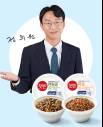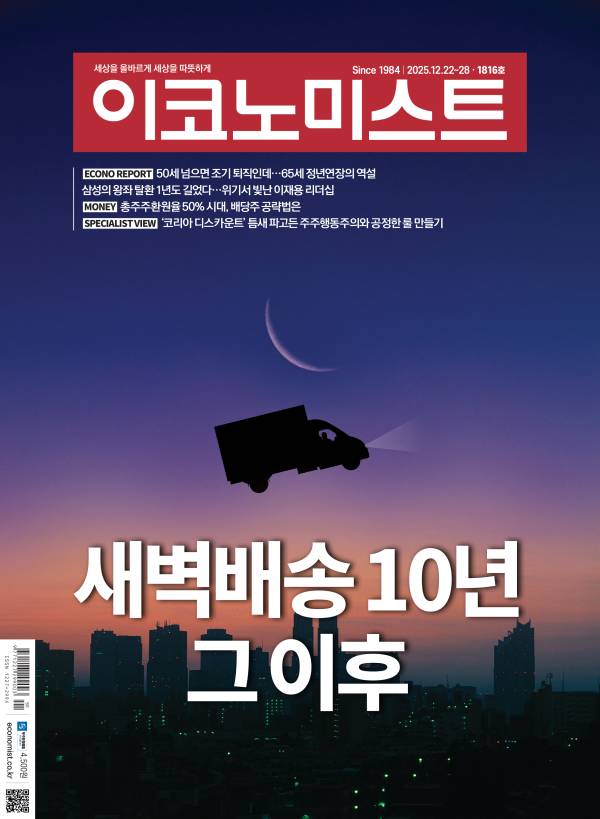- Taking the Junk Out of Junk Food
| Learning With Newsweek 영문 기사를 읽고 질문에 답해 봅시다. 이 기사의 번역문은 뉴스위크 한국판 2007년 10월 31일자 41쪽에 실렸습니다. |
1.fluorescent orange cheese flavoring), the maze of windowless rooms on the second floor of the Frito-Lay headquarters could pass for a university microbiology lab. Highly flammable beakers of
2.globby fats are separated, broken down and measured, as scientists try to test the fat content in batches of chips. A walk-in cooler is filled with huge boxes of apples, part of something the company calls the "Eden Project." And don't laugh: with the recent launch of Frito's Flat Earth line of baked fruit and vegetable crisps ("one-half serving of real vegetables in every ounce”), the company is now the nation's largest buyer of pumpkin, a big ingredient in the snack. It's all part of Frito-Lay's attempt to secure its financial future by creating the ultimate
3.oxymoron: healthy junk food. At a time when rising
4.obesity levels have become a national preoccupation and New York City has banned artery-clogging trans-fatty oils in restaurants, food companies are trying to adapt to shifting nutritional
5.mores. It's a risky and expensive balancing act - no company wants to alienate the junkies who care about taste above all. But, in fits and starts, food companies are changing. McDonald's has become the nation's biggest buyer of apples (which it serves with a side of sugary caramel sauce). Coca-Cola recently launched Diet Coke Plus, fortified with vitamins. After several years and 28 recipes, all 4,500 Dunkin's Donuts stores will be using zero-gram trans-fat oil to make the doughnuts. But will Homer Simpson still approve? Perhaps no company has more at stake than chip-giant Frito-Lay, the world's biggest producer of snack foods, with $10 billion-plus in annual sales. Home of Doritos, Fritos, Cheetos and Tostitos, Frito-Lay represents 36 percent of parent company PepsiCo's operating profits. Faced with emerging scientific data of the
6.perils of trans fats, which are created when hydrogen is added to liquid oil in a process that creates a solid fat that's easier to work with, Frito-Lay abandoned their use in 2002. But now that so many other food companies have made the switch, how can Frito-Lay still look more healthful than the competition? The snack company has come up with a
7.provocative new tack: making chips it claims provide the kind of dietary fat a body needs (seriously). Often, companies replace trans fats with
8.saturated fats, which are known to raise LDL, or "bad," cholesterol. So Frito-Lay is starting to use more unsaturated fats, which help lower LDL cholesterol and are believed to raise HDL, or "good," cholesterol. "We've telling customers that it may seem
9.counterintuitive, but there are good fats, and the fat you are going to get in our products is going to be beneficial," says Bob Brown, Frito-Lay's director of nutrition and regulatory affairs. It's not the easiest argument to make - no company has yet developed a chip as nutritionally sound as, say, carrot sticks or a few raw nuts. Frito-Lay's conversion last year to sunflower oil, however, demonstrates the complexity of addressing consumer awareness about nutrition on such a large scale. When the company first eliminated trans fats, it switched to cottonseed oil, which, although healthier in some respects, was still high in saturated fat. Amid mounting evidence of a link between saturated fat and heart disease, Brown said the company knew it would need to evolve further, but its choices were limited: soybean oil, which spoils easily, or sunflower oil, of which there was little supply. It took several years and millions of dollars for Frito-Lay, oilmakers and farmers to develop a sustainable sunflower crop. It was only last year that the supply was steady enough to make the switch "eliminating 60 million pounds of saturated fat from the U.S. diet," the company
10.crowed. Frito-Lay's research division is now looking for the next competitive advantage, from using more whole grains to adding
11.colon-healthy fiber and lycopene, an
12.antioxidant found in tomatoes and watermelon. Not that Frito-Lay's core customer cares deeply about heart-healthy eating habits. And, good fats or not, dietitians don't plan on blessing high-calorie processed snacks any time soon. "Nobody got heart disease from a
13.deficiency of chips," says Lisa Young, a dietitian at New York University. "I think the food industry gets an A in marketing. But this is better than nothing." As the saying goes (sort of): all that, and a bag of trans-fat-free, good-cholesterol-enhancing chips.
■ NOTES
1.fluorescent: 형광성의, 휘황한. 2.globby: 점액질의. 3.oxymoron: 모순어법. Ex. wise fool; faultily faultless; make haste slowly. 4.obesity: 비만. 5.mores: 사회적 관습, 관행, 도덕관. 6.peril: 위험, 위난. 7.provocative: 도발적인. 8.saturated: 포화. Ex. saturated fat(포화지방). 9.counterintuitive: 직관에 반하는, 반직관적인. 10.crow (for): 의기양양하다; 자만하다. 11.colon: [해부] 결장. Ex. colon-healthy fiber(장에 좋은 섬유소). 12.antioxidant: 산화(노화)방지제. 13.deficiency: 부족, 결핍. |
■ Talk About It ● What does Frito-Lay's metaphor of "The Eden Project" refer to? (Frito-Lay사의 “에덴 계획”은 무엇에 빗댄 표현인가?) ● What is the ultimate goal of Frito-Lay's attempt to provide healthy junk food? (Frito-Lay사가 건강한 정크 푸드를 제공하려는 궁극적인 이유는 무엇인가?) ● How is trans-fat produced? (트랜스 지방은 어떻게 생산되나?) ● Why did most companies use trans-fat even though they knew about its detriments? (많은 회사가 트랜스 지방의 해로움을 알았으면서도 사용한 이유는 무엇인가?) ● What alternatives has Frito-Lay tried in order to substitute trans-fat? (트랜스 지방을 교체하려고 Frito-Lay사는 어떤 대체품을 시도해봤나?)
■ Work It Out
1. In the passage, the writer mentions "healthy junk food" as an oxymoron. How would you define "junk food"? Do you think that following the trend of :"healthification" will abolish the label "junk" eventually? (본문에서 필자는 “건강한 정크 푸드”라는 모순된 표현을 사용한다. 당신은 ‘정크 푸드’를 어떻게 정의하나? 음식의 “건강화” 추세를 좇다 보면 결국 “정크”라는 꼬리표도 사라진다고 생각하나?)
ⓒ이코노미스트(https://economist.co.kr) '내일을 위한 경제뉴스 이코노미스트' 무단 전재 및 재배포 금지










![면봉 개수 → 오겜2 참가자 세기.. 최도전, 정직해서 재밌다 [김지혜의 ★튜브]](https://image.isplus.com/data/isp/image/2025/12/21/isp20251221000019.400.0.jpg)
![갓 잡은 갈치를 입속에... 현대판 ‘나는 자연인이다’ 준아 [김지혜의 ★튜브]](https://image.isplus.com/data/isp/image/2025/11/21/isp20251121000010.400.0.jpg)



당신이 좋아할 만한 기사
브랜드 미디어
브랜드 미디어
두나무·빗썸에 금감원 퇴직자 몰린다
세상을 올바르게,세상을 따뜻하게이데일리
일간스포츠
이데일리
[왓IS] MC몽·차가원 “부적절한 관계 NO, 전부 조작”…법적 대응 예고 [종합]
대한민국 스포츠·연예의 살아있는 역사 일간스포츠일간스포츠
일간스포츠
일간스포츠
석화 구조개편 본격화에도…업계 “버틸 체력 부족” 우려
세상을 올바르게,세상을 따뜻하게이데일리
이데일리
이데일리
[마켓인]‘1.7% 격차’ 좁힌 고려아연…MBK·영풍, 남은 5일 시나리오는
성공 투자의 동반자마켓인
마켓인
마켓인
'플루빅토 독점 구조 흔들까'…효능·부작용 앞세운 셀비온, 5400억 정조준
바이오 성공 투자, 1%를 위한 길라잡이팜이데일리
팜이데일리
팜이데일리